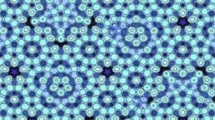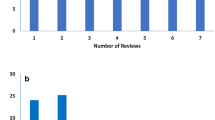Abstract
This paper presents a novel model of science funding that exploits the wisdom of the scientific crowd. Each researcher receives an equal, unconditional part of all available science funding on a yearly basis, but is required to individually donate to other scientists a given fraction of all they receive. Science funding thus moves from one scientist to the next in such a way that scientists who receive many donations must also redistribute the most. As the funding circulates through the scientific community it is mathematically expected to converge on a funding distribution favored by the entire scientific community. This is achieved without any proposal submissions or reviews. The model furthermore funds scientists instead of projects, reducing much of the overhead and bias of the present grant peer review system. Model validation using large-scale citation data and funding records over the past 20 years show that the proposed model could yield funding distributions that are similar to those of the NSF and NIH, and the model could potentially be more fair and more equitable. We discuss possible extensions of this approach as well as science policy implications.


Similar content being viewed by others
References
Azoulay, P., Zivin, J. S. G., & Manso, G. (2009). Incentives and creativity: Evidence from the academic life sciences. Working Paper 15466, National Bureau of Economic Research. doi:10.3386/w15466. http://www.nber.org/papers/w15466.
Azoulay, P., Zivin, J. S. G., & Manso, G. (2012). NIH peer review: Challenges and avenues for reform. National Bureau of Economic Research Working Paper 18116.
Bollen, J., Rodriguez, M. A., & Van de Sompel, H. (2006). Journal status. Scientometrics, 69(3), 669.
Bornmann, L., Mutz, R., & Daniel, H. D. (2007). Gender differences in grant peer review: A meta-analysis. Journal of Informetrics, 1, 226.
Brin, S., & Page, L. (1998). The anatomy of a large-scale hypertextual web search engine. Computer Networks and ISDN Systems, 30, 107.
Cicchetti, D. V. (1991). The reliability of peer review for manuscript and grant submissions: A cross-disciplinary investigation. Behavioral and Brain Sciences, 14(1), 119–135.
Cole, G. S. S., & Cole, J. R. (1981). Chance and consensus in peer review. Science, 214, 881.
Ding, Y., Yan, E., Frazho, A., & Caverlee, J. (2009). PageRank for ranking authors in co-citation networks. Journal of the American Society for Information Science and Technology, 60(11), 2229.
Editor (2010). Calm in a crisis. Nature, 468, 1002.
Editor (April 25 2011). Dr. No money: The broken science funding system. Scientific American.
Editorial (2013). Twice the price. Nature, 493(7434).
F.S.C. of the Federal Demonstration Partnership (2007). A profile of federal grant administrative burden among federal demonstration partnership faculty. Tech. rep. http://www.iscintelligence.com/archivos_subidos/usfacultyburden_5.pdf.
Geard, N., & Noble, J. (2010) Modelling academic research funding as a resource allocation problem. In 3rd world congress on social simulation.
Gilbert, N. (2009). Wellcome trust makes it personal in funding revamp: People not projects are the focus of longer-term grants. Nature (Online), 462(145), 145. doi:10.1038/462145a.
Gura, T. (2002). Scientific publishing: Peer review, unmasked. Nature, 416(6878), 258.
Herbert, D. L., Barnett, A. G., & Graves, N. (2013). Funding: Australia’s grant system wastes time. Nature. doi:10.1038/495314d.
Herbert, D. L., Coveney, J., Clarke, P., Graves, N., & Barnett, A. G. (2014). The impact of funding deadlines on personal workloads, stress and family relationships: A qualitative study of Australian researchers. BMJ Open. doi:10.1136/bmjopen-2013-004462.
Horrobin, D. (1996). Peer review of grant applications: A harbinger for mediocrity in clinical research? The Lancet, 348, 1293.
Ioannidis, J. M., & Nicholson, J. P. A. (2012). Research grants: Conform and be funded. Nature, 492, 34. doi:10.1038/492034a.
Jefferson, T. (2006). Quality and value: Models of quality control for scientific research. Nature. doi:10.1038/nature05031.
Johnson, V. E. (2008). Statistical analysis of the National Institutes of Health peer review system. Proceedings of the National Academy of Sciences, 105, 11076.
Kaiser, J. (2008). Zerhouni’s parting message: Make room for young scientists. Science, 322(5903), 834.
MacRoberts, M. H., & MacRoberts, B. R. (2010). Problems of citation analysis: A study of uncited and seldom-cited influences. Journal of the American Society for Information Science, 61(1), 1–12.
Marsh, H. W., Jayasinghe, U. W., & Bond, N. W. (2008). Improving the peer-review process for grant applications: Reliability, validity, bias, and generalizability. American Psychologist, 63, 160.
Myhrvold, N. (1998). Supporting science. Science, 282, 621.
National Science Foundation (2009). Fiscal year 2010 budget request to congress.
National Science Foundation (2015). Fy2015 agency financial report. NSF report nsf16002. http://www.nsf.gov/publications/pub_summ.jsp?ods_key=nsf16002.
Rowe, G. L., Burgoon, S., Burgoon, J., Ke, W., & Börner, K. (2007). The scholarly database and its utility for scientometrics research. In Proceedings of the 11th international conference on scientometrics and informetrics (pp. 457–462).
Roy, R. (1985). Funding science: The real defects of peer review and an alternative to it. Science, Technology, and Human Values, 10, 73.
Smith, R. (2006). Peer review: A flawed process at the heart of science and journals. Journal of the Royal Society of Medicine, 99, 178.
Southwick, F. (2012). Academia suppresses creativity. The Scientist.
Suresh, S. (2012). Research funding: Global challenges need global solutions. Nature, 490, 337.
Wessely, S. (1998). Peer review of grant applications: What do we know? The Lancet, 352, 301.
Acknowledgments
The authors acknowledge the generous support of the National Science Foundation under Grant SBE #0914939 and SMA #1636636, the National Institutes of Health under Grants #P01AG039347 and #U01GM098959, and the Andrew W. Mellon Foundation. We also thank the Los Alamos National Laboratory Research Library, the LANL Digital Library Prototyping and Research Team, Thomson-Reuters, and the Cyberinfrastructure for Network Science Center at Indiana University for furnishing the data employed in this analysis. The authors thank Marten Scheffer (Wageningen University) for his extensive feedback on our work and his support of in vivo implementations.
Author information
Authors and Affiliations
Corresponding author
Ethics declarations
Competing interest
The authors declare that they have no competing financial interest.
Electronic supplementary material
Below is the link to the electronic supplementary material.
Rights and permissions
About this article
Cite this article
Bollen, J., Crandall, D., Junk, D. et al. An efficient system to fund science: from proposal review to peer-to-peer distributions. Scientometrics 110, 521–528 (2017). https://doi.org/10.1007/s11192-016-2110-3
Received:
Published:
Issue Date:
DOI: https://doi.org/10.1007/s11192-016-2110-3




